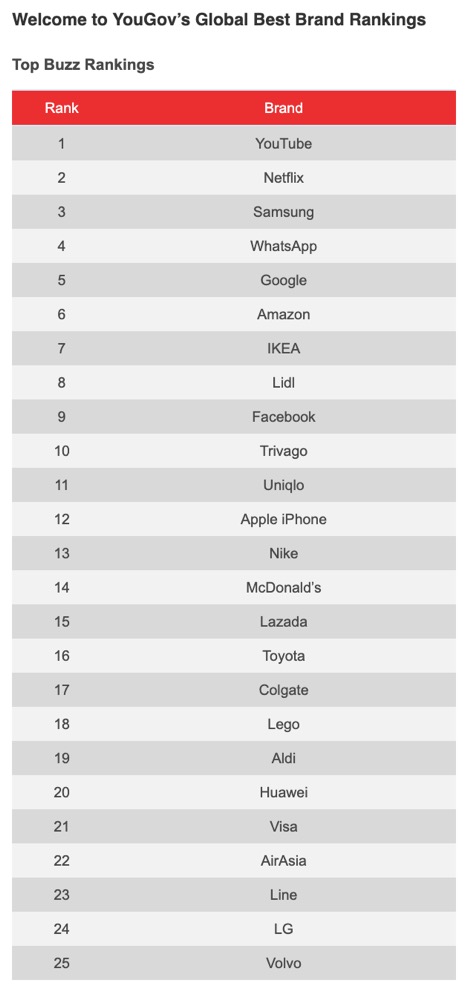The success of your business often rides on one thing: your corporate reputation. But how can something so important be so desperately intangible? Despite our inability to “calculate” corporate reputation, the future of your business relies on your ability to keep it in good standing.
It’s so important, in fact, that 97 percent of travel business owners say online reputation management is important to their business.
And it’s not just the travel industry that benefits from a likable corporate reputation. According to the 2018 Reputation Dividend Report, corporate reputation is estimated to be responsible for an average of 38 percent of market capitalization across the FTSE 100 & 250: a total of £1,062 billion of shareholder value, up 5 percent from last year.
The statistics are overwhelming and confirm that reputation can lift, sink, or otherwise change the value of a company (more on that later). This blog will dive into the concept of corporate reputation—why it matters and how to measure it. Then we’ll detail specific examples of how companies have overcome or succumbed to, reputation disasters.
Why corporate reputation matters
Your corporate reputation hinges on the sentiment your consumers feel about your brand. Now corporate sentiment is difficult to quantify, but people do try!
It’s easier to think of the big picture effects of a fluctuating reputation to assess just how much reputation matters. For example, if a company’s corporate sentiment is positive, it can expect to see:
- Increased revenue and stock prices
- Decreased churn rate
- Increased customer lifetime value
- Better job candidates and employees
On the flip side, a negative corporate sentiment will surely cause stock prices to dip, customers choosing the competition, and higher turnover and less qualified employees.
So with these two futures in mind, it is clear that it’s worth taking the time to improve (or to uphold) your corporate reputation. But how do you do that in an ever-changing market? Let’s take a look at some examples of brands that have survived shifts in their reputation, and how we can learn from their experiences to avoid common pitfalls.
Corporate reputation brand analysis
Reputations can change quickly without notice. One day your company may seem reputationally secure—you have loyal champions of your brand, you’re able to charge a premium for your products or services, and the general public has a favorable opinion regarding your company.
But what happens when something goes sour? The stronger your corporate reputation is, the easier it will be for your brand to overcome publicity disasters. Whether an executive made a bad decision or you were associated with negative media backlash, your reputation can potentially save you from a crisis.
Let’s take a look at the reputational journeys of a few brands, and how they handled reputation crises.
Coca-Cola’s lasting brand reputation
The soft drink behemoth has had its fair share of reputation scandals, but it continues to overcome them all. Why? Simply because its reputation is so strong that people will remain loyal to the brand even if it is in hot water.
How much is Coca-Cola’s brand worth?
Coca-Cola dominates the charts year after year for its reputation and brand recognition. Valued at $80 billion, Coca-Cola was ranked #5 in Interbrand’s Best Global Brands 2018 list. Here are a few reasons why Coca-Cola resonates so strongly with its audience.
- Emotional appeal: Coca-Cola has a proven track record of listening to its customers, and adapting to changing customer needs. Time after time, they have swiftly resolved customer complaints or corporate crises.
- Financial performance: People trust companies that are doing well financially. A healthy financial forecast shows that a company is profitable and offers a low-risk investment.
- Corporate communications: Coca-Cola is transparent with its marketing and communications. By sharing company news and events, as well as appealing to emotions, Coca-Cola has established itself as a leader.
With such a strong reputation, Coca-Cola can overcome mistakes faster and easier than companies without such clout. Take, for instance, a 1999 policy that Coca-Cola tested in which vending machines would automatically raise prices during the summer heat. This resulted in a huge backlash at the time, as customers in hotter climates felt unfairly targeted based on where they lived. The policy didn’t last long, resulting in Coca-Cola pulling the idea and hiring a new CEO.
Coca-Cola survived the incident relatively unscathed. Would a company with less brand loyalty have been able to do the same? Probably not.
How Salesforce grew its reputation
Salesforce entered the market in 1999. Virtually unknown and competing with top established brands like Microsoft and Oracle, Salesforce didn’t seem to stand a chance. Salesforce was even referred to as “the ant at the picnic” for taking on Siebel. So how did this little “ant” grow up to be one of the biggest forces in CRM software? By building a strong corporate reputation. Here are a few ways they did it:
- Guerilla marketing: Salesforce broke into the scene by leading creative events that created a reason for the media to report on them. Rather than trying to promote themselves in the traditional sense, Salesforce created news that landed them in the media.
- Social responsibility: Today’s consumers have high expectations when it comes to social responsibility and they are more likely to support brands that hold commitments to improve society.
- Vision and leadership: Salesforce has a clear vision for the future and a CEO that is consistently well-liked.
How to measure corporate reputation
There’s no shortage of lists and descriptions of how to measure corporate reputation online. However, the formula, criteria, and rankings vary greatly depending on which website you check. Here are a few of the top ways to measure corporate reputation.
- Search engine research: A simple Google search can go a long way. Search your company or your competitors to get a sense of the mood surrounding each. Check out Google’s news tab for more current search results.
- In-depth research: Once you’ve run a diagnostic search, begin to dig deeper into the blogs, articles, and reviews you find to discover how and why the sentiment is what it is.
- Social research: Perform social listening to find out what the social buzz is around your business.
The above tactics will give you a good idea of the general sentiment surrounding your corporate reputation. Having more positive posts about your business than negative is absolutely critical to the success of your business. Since 64% of consumers trust search engine results more than traditional media, you want to make sure that what they see on the Internet is a positive reflection of your business.
By actively measuring your corporate reputation, you can develop more effective strategies to maintain and drive business growth. You’ll know how and when to spend those valuable marketing dollars to see results. In addition to the research techniques listed above, here are a few more best practices for measuring your corporate reputation.
Set fluid goals
We’ve already established that corporate reputation is intangible. One of the biggest mistakes executives often make trying to quantify reputation is to set rigid criteria to the measurement or even to assign a number to it. Instead of approaching the measurement as a hard and fast number, consider it as more of an instrument capable of evolving with changing trends and goals. Corporate reputation and business growth are closely intertwined, so as your success metrics change, so should your corporate reputation measurement factors.
Consider your audience
It is important to be true to the public’s sentiment when measuring your reputation, and to avoid letting any internal biases affect your measurement. Keep in mind that “the public” can be segmented into several key groups: stakeholders, investors, employees, customers, influencers, haters, etc. It is beneficial to take into account how each of these groups is affecting your corporate reputation and to develop specific strategies for each group to improve or maintain your reputation. What matters to one group may prove to be useless to another.
Execute an action plan
When dealing with a measurement as fluid in nature as corporate reputation, it is important to develop an action plan that you stick to over time. Half the battle with measuring your reputation is being consistent. Set priorities for what you’re going to measure, develop a roadmap as to how, and establish accountability for the team members responsible for collecting the data.
By consistently measuring your corporate reputation over time you can be in a better position to detect any reputational crises and will be better equipped to handle them if and when they arise.
What are today’s top brands
YouGov’s 2018 Global Best Brand Ranking shows the top brands worldwide. The list is compiled based on surveys with more than six million people to find out how people feel about each brand. Respondents were asked, “If you’ve heard anything about the brand in the last two weeks, through advertising, news or word of mouth, was it positive or negative?”
Here are the results:
Top value of brands
The brands that top this list not only have successful reputations, but they are hugely successful financially. Each company that made this list enjoys a healthy amount of champions of their brand as well as a strong financial worth.
Conclusion
Every company’s reputation changes over time, and each journey is full of its own nuances and challenges. Although it is impossible to craft a formula for defining your corporate reputation, the fact is that it’s extremely important and absolutely worth the time and effort required to maintain it.
A positive corporate reputation will result in increased revenue and stock prices, decreased churn rate, increased customer lifetime value, and even better job candidates and employees. The bottom line is clear: your corporate reputation defines the value of your company.

